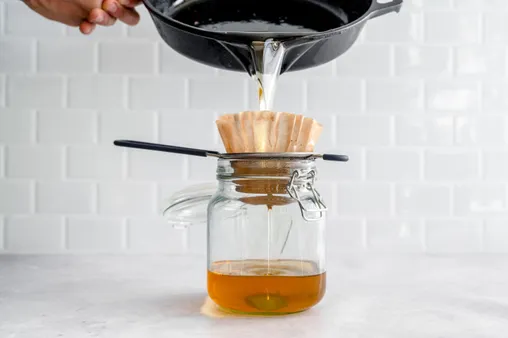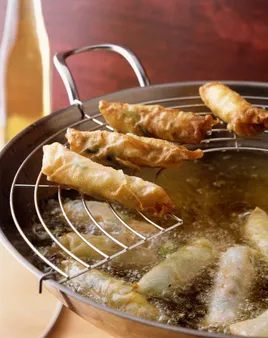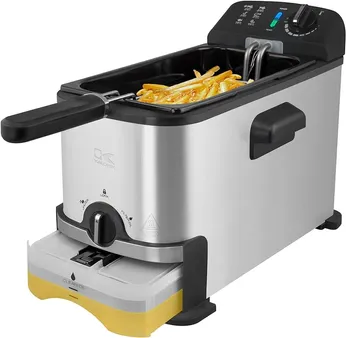Table of Contents
When it comes to deep frying, reusing oil can be a tempting way to save money and reduce waste. However, is it safe to reuse oil after deep frying? This question has sparked debates among home cooks and chefs alike. At tauhuichiban, we'll delve into the pros and cons of reusing cooking oil and provide you with practical tips for doing so safely. Reuse oil after deep frying, but do it wisely.
Type of Oil | Risk Level | Tips for Safe Reuse |
|---|---|---|
Oils high in polyunsaturated fats (e.g., vegetable oil) | High | Avoid reusing multiple times, use fresh oil for each cooking session |
Olive oil and canola oil | Low | Can be reused with caution, follow proper maintenance and storage |
All oils | - | Use a thermometer, remove excess batter, and strain oil after each use |

Is It Safe To Reuse Oil After Deep Frying? The Ultimate Guide
Can I Reuse Oil After Deep Frying?
You might be wondering if it's okay to reuse oil after deep frying. Well, the answer is yes, but with some important considerations. Just like how your favorite toy can get worn out after playing too much, oil can also lose its quality when used repeatedly for frying. So, while reusing oil can save you money and reduce waste, it's crucial to do it safely and wisely.

Can I Reuse Oil After Deep Frying?
When you reuse cooking oil, you're playing with fire - literally! The high heat from deep frying can break down the oil's molecular structure, creating harmful compounds that can increase your risk of stroke, atherosclerosis, and other diseases. It's like playing a game of Jenga - remove one wrong block, and the entire structure comes crashing down!
Type of Oil | Risk Level |
|---|---|
Oils high in polyunsaturated fats (e.g., vegetable oil) | High |
Olive oil and canola oil | Low |
Lipid degradation products, the harmful byproducts created during frying, can increase the risk of these diseases. Oils high in polyunsaturated fats, like vegetable oil, generate more of these byproducts when reused. On the other hand, olive oil and canola oil, which contain less polyunsaturated fats, are better choices for frying. But, remember, even with these safer options, reusing oil too many times can still lead to a build-up of harmful compounds.
Practical Tips for Reusing Oil Safely
Think of your cooking oil like a superhero cape. You can reuse it a few times, but eventually, it gets tired and needs to be replaced! Here's how to make your oil's superpower last longer: First, let the oil cool down after frying, like when you give your bike a break after a long ride. Once it's cool, carefully pour it through a strainer lined with cheesecloth or a coffee filter. This gets rid of any leftover food bits that can make your oil go bad faster, kinda like cleaning your room so your toys don't get dusty. Store your strained oil in a sealed container in a cool, dark place, just like how comic books are stored to keep them in tip-top shape.

Practical Tips for Reusing Oil Safely
In conclusion, reusing oil after deep frying can be a cost-effective and environmentally friendly option, but it's crucial to be aware of the potential health risks and take necessary precautions. By following the tips outlined in this article, you can minimize the risks and enjoy your favorite fried foods while keeping your health and wallet in mind.